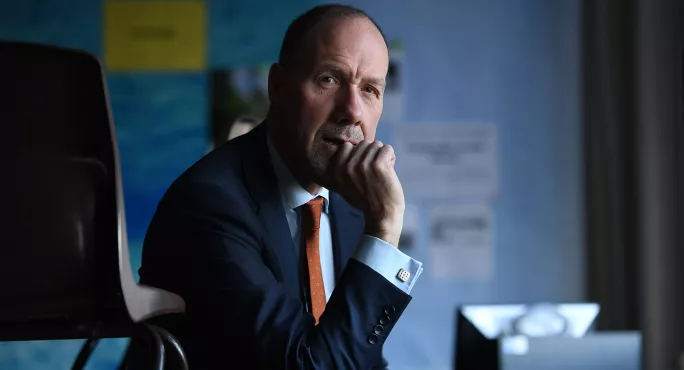- Home
- Teachers have risen to this challenge with assuredness
Teachers have risen to this challenge with assuredness

So, how’s the most unusual week of your career been?
Many of you will have been navigating the challenges of teaching pupils from a laptop, or supervising small groups of children in otherwise eerily empty schools. Some of you will have unfortunately been ill, some perhaps seriously so. Others will be desperately worried about elderly relatives, and loved ones in other high-risk groups.
We find ourselves unexpectedly immersed in new ways of working, in new ways of living.
Here at ASCL, like many other organisations forced into an upending of conventions by these extraordinary circumstances, our headquarters is closed, all our staff are working from home, keeping in touch via email, video conferencing and myriad digital platforms we never knew we needed.
Our reception service - taking dozens of enquiries each day - continues to operate seamlessly; it is just that our receptionists are at home. And our work has become focused almost entirely on the task of listening to the plethora of questions which follow from the most turbulent week in the history of the education system - and then endeavouring to answer them in short order. If you’d like to see some of those questions and how we have responded you can do see our FAQs here.
And while, as ever, we’ve seen amid this crisis some of the worst of human instincts - the selfishness, the hoarding, the refusal by a few to act in the common good, we’ve also seen the best - such as last night’s moving display of collective thanks for our NHS workers, the unstoppable desire to volunteer, the sudden sense that perhaps - on the other side of all of this - we will emerge with a refreshed sense of national values, of what actually matters in life.
But that’s a long way off. As Lenin said, “There are decades where nothing happens; and there are weeks where decades happen.” So let’s turn our attention to next week.
New reality
Over the course of the next few days, Ofqual will tell us all how GCSE and A-level grades will be worked out this year. A few weeks ago it was simply unimaginable that exams would be cancelled. Even as the storm clouds of the coronavirus epidemic gathered, we continued blithely to insist the exam season was bound to go ahead. After all, sports halls requisitioned as examination halls on a mighty scale is an annual ritual as British as fish and chips or putting together coronavirus playlists.
Now, this totem of educational life is gone, for the time being at least. The new reality is the virtual quarantine of the British population.
All of which leaves us with a huge problem. Thousands of students, who have been relentlessly reminded about the importance of exams for so many years, have suddenly had the rug pulled from under them. They - and the wider public - will have only a vague idea of what a system of “moderated teacher assessment” means, and how it will affect those all-important grades upon which far too much depends.
With that in mind then, here are some thoughts.
First, it would be helpful if the usual cavalcade of commentators who are always so keen to tell us about the unreliability of teacher assessment would desist from doing so. We can argue at another time about the accuracy of predicted grades for university applications, but this is utterly different from a standardised system of teacher assessment rigorously checked against what amounts to an enormous mathematical algorithm. The mechanics of the qualification system may not always lift the spirits, but they will help to make this year’s results as fair and as consistent as possible.
Second, this is a moment for us, as a profession, to show that there really is a different way of doing things. In the public mind, exams are synonymous with qualifications. The terms are interchangeable because that is how the system has always worked. The idea that grades can be awarded without the annual 1950s-style ritual of rows of students in exam halls, writing furiously against the clock, will have been met with bewilderment.
This is a chance then to show there is an alternative; that we don’t necessarily need to subject young people to the 33 hours of exams which is now typical in GCSE season. We can at least point the way to more humane system that employs a range of rigorous, ethical, professionally-moderated assessment methods that are less crushing to so many, and allow all students to show their strengths. We won’t reinvent the wheel this year. Exams will return in 2021. But we will start people thinking.
Rising to the challenge
None of this is going to be easy. The strangeness of teaching via laptop is about to become even stranger, as we manage an unfamiliar system of assessment on a national scale from our living rooms.
But what I know - from the emails and messages which have poured into ASCL over the past week, from speaking to so many leaders - is that the profession is rising to the challenge of the current reality with calmness, assuredness and great distinction.
As Bob Marley said: “You never know how strong you are until being strong is your only choice.” The strength of those working in our schools and colleges has been palpable this past week. You deserve our huge thanks.
Geoff Barton is general secretary of the Association of School and College Leaders. He tweets @RealGeoffBarton
Keep reading for just £1 per month
You've reached your limit of free articles this month. Subscribe for £1 per month for three months and get:
- Unlimited access to all Tes magazine content
- Exclusive subscriber-only stories
- Award-winning email newsletters



